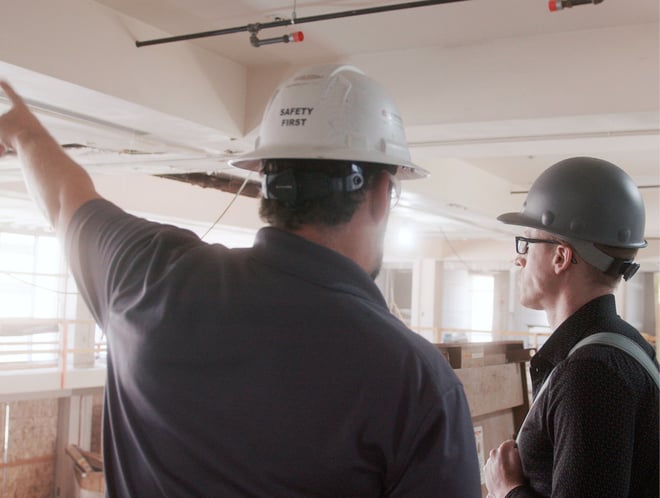Levels and Types of Building Project Commissioning

Building project commissioning is the process of checking building systems and verifying that they are designed, constructed, and operating as intended. Investing in the service can prevent operational inefficiencies and reduce maintenance and energy costs. It is also a requirement for many building verification systems, including Leadership in Energy and Environmental Design (LEED).
Commissioning agents offer various services and can have different levels of involvement in a building project. Although most commissioning happens during construction, agents can advise on design decisions.
When hiring a commissioning agent, you may wonder what level of service your project requires. This article will explain different levels and types of commissioning services—helping you determine your needs.
Levels of Project Commissioning
Commissioning agents can have varying levels of involvement in a building project. While many owners hire commissioning agents before construction, we recommend involving them in design discussions.
You can even hire a commissioning agent before consulting an architect. The agent can help you identify project requirements, programmatic elements, and overarching goals. During the design process, the commissioning agent will join discussions and recommend products and systems, discuss best practices, and establish a lens for operations.
Commissioning agents are a valuable voice in the design process because they focus on operations. An engineer may recommend a mechanical system, and a commissioning agent will verify that it aligns with your maintenance goals.
Before construction, the commissioning agent will set expectations in the contract documents for the contractor to follow, including testing requirements. Like an architect, they will make periodic site visits, review submittals, and provide technical knowledge.
A commissioning agent’s involvement picks up toward the end of construction during systems startup. They will review all systems and create an issue log for the contractor to resolve. Along with your architect, they will check in 10-11 months after occupancy to verify the building is operating as intended.
In short, commissioning can occur throughout the design process. Although it is not required, involving a commissioning agent earlier can help you achieve the best outcomes for maintenance and operations.

Commissioning agents' involvement picks up during construction.
Types of Project Commissioning
Commissioning agents offer various services. While systems commissioning is the most common service, they can also check building envelopes and analyze existing buildings.
1. Systems Commissioning
Systems commissioning, also known as mechanical and electrical commissioning, is the most common commissioning type. With this service, the commissioning agent will review building systems, including:
- Mechanical systems
- Electrical systems
- Power and lighting systems
- Renewable energy sources, like solar arrays
Depending on your location, systems commissioning may be a code requirement. The service is also required for LEED and other building verification systems.
2. Building Envelope Commissioning
Building envelope commissioning involves checking the building envelope to ensure it meets the owner’s requirements. The commissioning agent will evaluate:- Wall framing
- Cladding
- Sealants
- Insulation
- Roofing
- Windows, doors, and other air barriers
This type of commissioning can improve building performance, mitigate water filtration issues, and reduce thermal bridging (heat lost through the building envelope). For LEED, envelope commissioning falls under “enhanced commissioning.” It’s not required but can help you achieve additional points.
3. Retro-Commissioning
Retro-commissioning is the process of analyzing and optimizing existing building systems. It can occur once every five to ten years to keep all systems operating at peak performance.
Like systems commissioning, the agent can check mechanical systems, electrical systems, and renewable energy sources.
Retro-commissioning can help reduce energy costs, improve occupant comfort, and help you make a long-term plan for capital improvements. It can also be a great way to gauge your needs when planning a renovation.
Learn How to Improve Building Performance
Building project commissioning is more than checking systems during construction. The commissioning agent can participate throughout the design process, make recommendations, and plan for maintenance and operations.
Investing in additional commissioning services can greatly improve building performance and reduce operational costs. It can also help you earn extra points when pursuing LEED.
Commissioning is just one investment to make on a building project. Renewable energy systems, energy-efficient mechanical systems, and energy modeling can also provide a return on investment. Learn more by reading about seven investments that improve building performance.